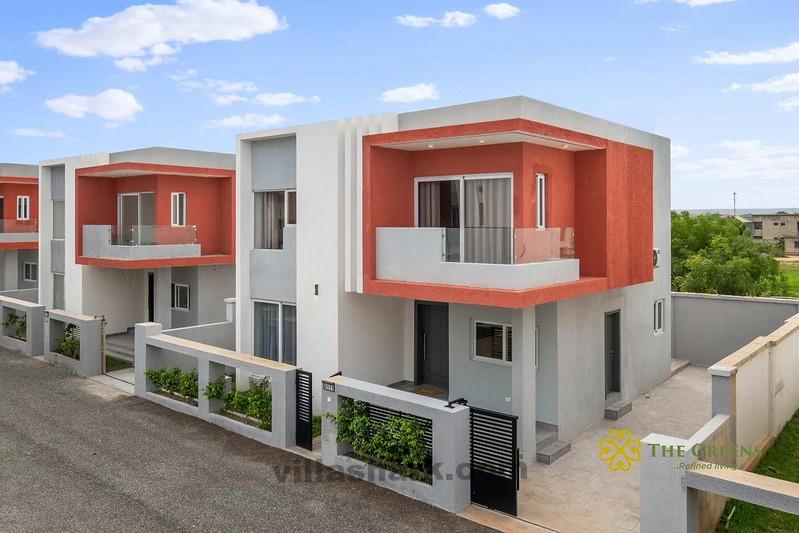Trademarks vs. Copyrights
- How to Set Up a Trust
- How to Create a Will
- What Is a Long Lasting Power of Attorney
- Arizona LLC
- California LLC
- Florida LLC
- Michigan LLC
- New Jersey LLC
- New York LLC
- North Carolina LLC
- Ohio LLC
- Pennsylvania LLC
- Texas LLC
- Contact Us
- AI Doc Assist
- Business Name Generator
- Electronic Signature
- Free Trademark Search
- Legal Glossary
- Legal Templates
Real Estate
1. Business Real Estate
Gross Lease vs. Net Lease: How to Decide
Have legal questions about property?
Excellent
Jennie L. Phipps
Christina Aryafar
Contents
Finding a place and negotiating a lease is an important early step in the formation and growth of a business. Whether you choose a gross or net lease is an important choice because process.
Most commercial realty leases are very different from the residential leases that many individuals indication throughout their lives. Residential leases are mainly non-negotiable at a repaired rent quantity. You pay the real lease the property manager needs, and you sign the lease, accepting the terms the residential or commercial property owner has outlined.
Negotiating industrial lease arrangements is a lot more of a give-and-take situation, consisting of not just just how much the payment will be however also how every part of the lease will be structured. Besides deciding the kind of lease, you think about how the residential or commercial property can be utilized and who will spend for what. That includes whether the renter or the proprietor covers huge residential or commercial property costs like energy expenses, residential or commercial property taxes, and insurance coverage costs, plus extra expenditures
Within the 2 categories of commercial leases-gross lease and net lease-there are lots of choices for negotiation. The property manager and the potential occupant sit down and hash them out. These negotiations can be extremely made complex, but having a business lawyer in your corner will assist you secure the very best terms.
Start with the essentials
The base rent in commercial lease structures is the expense per square foot increased by the square video footage of the rental area. How the property manager determines that space can be essential. Does the property owner include the corridor? What about the stairwell? Unless you have a sharp eye for this kind of information, employing an attorney to assist specify the rental area can conserve money on the fixed lease amount before you get to the remainder of the information.
Next, consider how other necessary and variable property-related costs will be paid. These include energies, residential or commercial property taxes, insurance coverage costs, and upkeep. How will tenants and the landlord share expenses for the building's common areas, consisting of parking, lobbies, landscaping, restrooms, and additional expenditures? Will the property manager spend for constructing maintenance or split expenses with the renter, or will the renter pay the entire cost of residential or commercial property maintenance and other building costs?
These are bottom-line concerns, and the answers to these questions will lead you to decide the sort of lease you're ready to sign and how that lease must be structured.
What is a gross lease?
In a gross lease, the tenant pays only the base lease. The property manager is accountable for spending for whatever else. In most cases, the lease will be significant, reflecting the landlord's costs, but the tenant will pay really little above that agreed-upon rent, if anything. This sort of predictability can be helpful for a small or start-up organization.
This might be the lease for you if you're a new business, and you do not know whether the area is right or perhaps if your organization will survive. You most likely can negotiate a short-term gross lease with the right of very first rejection to restore. This gives you some stability plus a little wiggle space. You can get out of the lease rapidly if you require to, or if things go well, you can renegotiate for a lease that will serve your growing company much better.
What is a net lease?
Signing a net lease is a lot like buying a residential or commercial property. The lease payment consists of the base lease plus at least one of these classifications: residential or commercial property taxes, maintenance, and insurance.
In a single lease (N), the tenant pays base or fixed lease plus among the cost categories. In a double net lease (NN), the renter pays the base rent plus two of these classifications. In a triple net lease (NNN), the renter pays base lease and all 3 categories of costs.
Triple internet leases are most common in longer leases-10 years or more. They are particularly typical in leases of retail areas or office rentals where the renter will control the entire workplace building.
Gross lease vs net lease: Full contrast
Here are some things to consider about gross vs. net leases. Understanding these fundamentals is necessary, even if you have an excellent lawyer in your corner.
Key differences in between gross and net leases
- An occupant with a net lease agreement pays a reduced base lease compared to a gross lease, a reduction that must be big enough to offset the cost of paying the other cost allotments.
- Gross leases are generally for little spaces. Net leases, triple web, in particular, are frequently for whole office complex.
- Gross leases totally free an occupant from unpredictable operating expense, although modified gross leases can appoint a few of those operating expenditures to the tenant. For circumstances, in modified gross leases, occupants can be accountable for paying a few of the energy costs or insurance coverage expenses but not others. In offers counting on customized gross leases, renters and property owners must concur on how operating costs will be paid. Will the property manager pay everything and recover the expenses from the renter, or will the tenant be accountable for paying directly?
- Because net leases featured lower base lease payments, the occupant has more control over the other expenses. In a building that has actually been well managed, upkeep and even residential or commercial property tax costs will be lower, and the occupant can work to keep them that method.
- An occupant with a triple net lease can sublease parts of the structure that the company doesn't require at the minute. Those subleases will even more lower the operating expenditures.
- Using a savvy attorney can make a difference in any real estate negotiation, but net leases-single net leases, double net leases, or triple net leases-are specifically intricate, making involving a legal representative really crucial.
Gross lease pros and cons
In some cases, choosing a gross lease makes best sense and can be a huge advantage. The renter pays rent. That's about it. Other times, no matter how simple it appears, a gross lease can cost you. Here are some choice points:
- Gross leases supply foreseeable rent payments that cover day-to-day expenses associated with leasing industrial residential or commercial properties. Budgeting is easier with a gross lease because unforeseen operating expense are not likely to pop up-at least not without some caution. This can be essential for business owners and start-ups with restricted capital.
- From a property owner's point of view, gross leases are basic for possible occupants to comprehend. That can make it much easier for a landlord to draw in a brand-new renter.
- At the exact same time, an occupant isn't generally locked into a long gross lease, so if the occupant's needs change-the business grows quickly or does not do well and needs to be shut down-having a gross lease that is simple to exit can be good.
- For an occupant, lack of monetary control is the main downside. Landlords who completely service leases can increase rent-sometimes by a lot-and the occupant does not have much option.
- Costs connected to residential or commercial property taxes and insurance can increase. There are strategies that can be utilized to help keep these business expenses under control, however they normally cost cash upfront. A landlord with a full-service lease or other gross lease does not have much motivation to spend cash on decreasing operating costs.
Net lease benefits and drawbacks
While net leases are a bit more intricate, they work well for some services. Here are factors to remember.

- Triple net (NNN) leases are really common and popular. Tenants like them due to the fact that they use the ability to customize the space to meet all sort of needs.
- If the area is too big, the occupant can partition and utilize the income from that rental cost to pay part of the business expenses.
- With aid from a savvy tax consultant, a renter can subtract residential or commercial property taxes and take the insurance costs as overhead.
- From a property manager's standpoint, triple web or perhaps double net leases offer stable income without much work. With an excellent occupant, the cash just keeps flowing.
- Maintenance costs can be a difficulty for both proprietors and occupants. If the building remains in great condition, maintenance costs won't be high, and the renter advantages. But if there is a requirement for pricey and unforeseen repair work, the renter can face business-threatening operating expenses.
- While the property owner might be off the hook since they do not pay maintenance expenses, this can backfire. A renter who wishes to avoid huge costs can scrimp on the repairs or merely hide them up until the costs have installed and the lease has ended.
How to pick the best business lease type
The lease type you should choose is the one that will use your business the biggest chance for success. Consider these factors:

If you're a young company, then a gross lease may serve you well due to the fact that it will offer more monetary predictability. A gross lease is also simpler to understand. If you're not prepared for a long-lasting lease and its monetary burden, a gross lease could be the ideal answer.
A net lease, with its lots of permutations, needs organization elegance. Companies that have steady capital and the capability to manage realty together with handling their other service are the very best candidates for net leases, especially triple net leases or their stricter cousins, absolute net leases. Signing an NNN lease is comparable to buying a residential or commercial property. You'll be devoting to a long-lasting lease-at least 10 years-and taking on the cost of upkeep and unsure insurance coverage charges. Meanwhile, the landlord is accountable for extremely little.

But if you are a significant seller or a big service company, for example, a net lease, specifically a triple net lease, can give you control, lower month-to-month costs, and low overhead, together with the capability to keep it that method. The fact that the property owner is responsible for really little is an advantage.
Before you make decisions about gross and net leases, talk with a lawyer who understands these concerns and who can carefully check out a lease and recognize problems.
5 factors to consult a commercial lease attorney
While not lawfully needed, it is extremely a good idea to engage an attorney who focuses on this field when participating in an industrial lease. Here are the leading factors:
Commercial lease attorneys have settlement abilities
An industrial lease is going to be among the greatest expenses your service will incur. It is necessary to not just get the finest rate however also lease terms that safeguard you from unreasonable needs, including boosts in the lease that go beyond what might be fairly expected. Attorneys who concentrate on commercial leasing handle such leases daily. They understand what provisions are excellent for your organization and which ones aren't. They understand what the proprietor is accountable for and how those obligations must be structured.
From a proprietor's point of view, a smooth-running occupant relationship will make your service and your life run more efficiently. And in the long run, you'll make more cash.
Clarity: You comprehend what you are signing
Commercial leases can be loaded with legal lingo. Anyone not well versed in this field of the law can get lost in the technical terms. A well-informed lawyer can likewise identify loopholes and unclear provisions that could leave you vulnerable.
You get crucial threat and disagreement management guidance

While we would all hope that the relationship in between the property owner and the renter is positive, it is smart to acknowledge that arguments take place. A business property residential or commercial property lawyer can make sure that the lease includes provisions securing the rights and interests of both celebrations. They can review the dispute resolution procedure and guarantee it includes options that when it comes to a conflict are fair to both sides.
Compliance and due diligence understanding is vital
When you sign a lease, you need to comply with state and local policies, including zoning laws, constructing codes, and particular regulations that use to your industry. A few of these rules can be tough to understand or easy to neglect. A knowledgeable lawyer can walk you through the requirements and ensure that the lease complies.
Expertise conserves you cash and gives you an exit technique
If something fails, you need a way out. A lawyer can help you comprehend the repercussions of things you hope will never happen. The attorney can work out terms that permit for flexibility if things do not go as prepared and the company needs to move or close. In the long run, this is reason enough to employ a lawyer with business property knowledge.
Can you work out the terms of a gross or net lease?
Yes. This is not a home lease. You can negotiate every part of a commercial space lease. Hiring a lawyer to do this for you is especially crucial because a lease is often the most considerable overhead a new business pays.
Exist concealed expenses in gross or net leases?

Absolutely. A big gotcha in gross leases is workplace lease expenditure caps. The landlord pays all the expenses as much as a specific quantity. After that, you pay. It is an easily misinterpreted and overlooked provision. In the case of triple net leases, things called "administrative charges" get added. You end up paying whatever plus a surcharge. These are by no suggests the only concealed expenses. This is why you need a lawyer to help you negotiate your lease.
Is a month-to-month lease much better for new services?
A regular monthly lease leaves a brand-new company with enormous uncertainty. It can result in a property owner raising the lease a punishing quantity. It can likewise suggest the property manager can terminate the lease with little or no warning. It might lead to your business losing any improvements you might have made to the residential or commercial property. Also, banks do not like month-to-month leases, and ought to you get funding to expand your company or become a residential or commercial property owner, you may be denied due to the fact that you don't have a stable lease.
Why is renting much better than buying?
Buying offers you more control over your residential or commercial property, but it binds your capital. It can leave you owning a residential or commercial property that no longer meets your needs. This topic needs significant analysis. Talk with both your legal representative and your accountant before you make this huge industrial property decision.
What is the something a possible renter should do?
Find an experienced business real estate attorney who will work with you to negotiate the very best lease offer possible.
This article is for educational functions. This material is illegal advice, it is the expression of the author and has not been examined by LegalZoom for accuracy or modifications in the law.
You may also like
Company
About.
Careers.
Contact.
Investors.
Press.
Partner with us.
Support
Order status.
Customer Care.
Speak with a lawyer.
Join our lawyer network.
Security.
Find out more
Business & Legal help resources.
Business Name Generator.
Legal form templates.
What is an LLC?
How to Start an LLC?
How to Change Your Name.
What is a DBA?
Most Profitable Small Company Ideas.
What Is a Registered Agent?
How to Conduct a Hallmark Search.
How to Learn if a Service Name is Taken?
© LegalZoom.com, Inc. All rights scheduled.
LegalZoom offers access to independent lawyers and self-service tools. LegalZoom is not a law office and does not offer legal suggestions, except where licensed through its subsidiary law office LZ Legal Services, LLC. Use of our services and products is governed by our Regards to Use and Privacy Policy.








